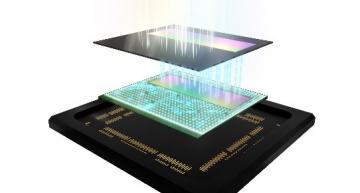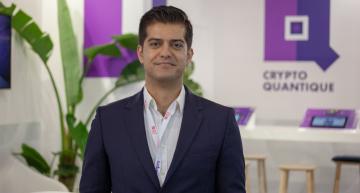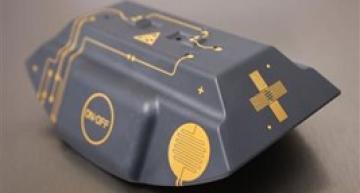
The University of Texas at Austin has launched a 6G research centre with leading industrial partners and chip makers.
The6G@UTcentre will look at ubiquitous sensing, machine learning and the ability to use higher frequency spectrum at mmWave and 'terahertz' (THz) bands above 100GHz for the next generation of cellular technology including localisation.
“5G’s vision of sensing has been insufficiently bold,” said Todd Humphreys, associate professor in UT Austin’s Department of Aerospace Engineering and Engineering Mechanics. “6G should begin with the premise that sensing is not just for reacting to conditions, but anticipating them, so that vital links to automated vehicles, AR/VR headsets, and other latency-sensitive applications can be maintained with utter reliability.”
Other areas of research include the need to open new spectrum and low Earth orbit satellite links to improve coverage across rural and urban areas and design new network architectures to enable better resource and infrastructure sharing. The6G@UT中心旋转的Cockrell学校的无线ss Networking & Communications Group, a 19-year-old research centre with more than 25 faculty members and 130 students and researchers.
Founding partners Samsung, AT&T, Nvidia, Qualcomm and InterDigital will each fund at least two projects for three years at the centre. Researchers from the companies will work alongside UT faculty members and students to develop wireless-specific machine learning algorithms, advanced sensing technologies, and core networking innovations that will be the backbone of 6G. Other universities in the US and Europe are also teaming up for 6G research.
Related 6G articles
- Major project starts in Europe with Hexa-X
- Reconfigurable metamaterial surfaces for next generation networks
- European group looks to next generation wireless specification
- European Vision for next generation Network Ecosystem
- China plans patent push, two more test satellites
- NI teams with NYU for terahertz research
“The advances in both wireless communications and machine learning over the past decade have been incredible, but separate,” said centre director Jeffrey Andrews, a professor in UT Austin’s Department of Electrical and Computer Engineering. “Coupled with vast new sensing and localization abilities, 6G will be defined by an unprecedented native intelligence, which will transform the ability of the network to provide incredible services.”
“Samsung is excited to embark on the approaching 6G era with UT Austin, which is one of the leading global universities on wireless research. Together, we will unlock the potential of machine learning in future networks and devices, harness the power of new spectrum in THz bands, and bring to life futuristic applications such as holographic calls and immersive AR/VR,” said Charlie Zhang, senior vice president of engineering and head of the Standards and Mobility Innovation Team at Samsung Research America.
“6G will be an inflection point for the use of AI and machine learning in sensing and wireless communications. We are excited to partner with the UT Austin team on this innovative 6G research that will help realize the communications systems of the future,” said Ronnie Vasishta, senior vice president of telecommunications at Nvidia.
"Collaborative research projects are integral to shaping our technology road map, and InterDigital is thrilled to be working alongside The University of Texas and industry peers to establish6G@UT. This collaborative endeavor will drive advancements in embedded machine learning and sensing technologies to enable new physical experiences in a zero-latency world," said Donald Butts, senior director of strategy at InterDigital which owns and develops some of the fundamental patents for CDMA.
“Driving wireless technology research and innovation forward to enable new applications is a key priority for Qualcomm, and we are proud to collaborate with UT Austin on their6G@UTresearch centre in our shared vision to embrace foundational technology intersections with industry for new verticals,” said John Smee, vice president of engineering and head of wireless research at Qualcomm.
Other articles on eeNews Europe
- Samsung Foundry tapes out 3nm GAA chip
- TI buys Micron’s Utah fab for $900m
- Nexperia buys Newport Wafer Fab
- Sony loses market share in image sensors
- Plans start for TSMC 2nm fab
- Siemens looks to digital twin, IoT to drive growth
- Nexperia spins out its semiconductor equipment business
- Asian lockdown creates global MLCC capacitor shortage






